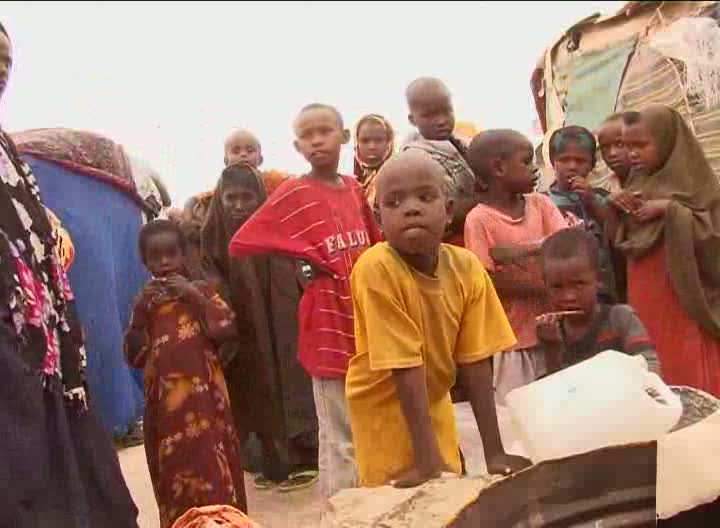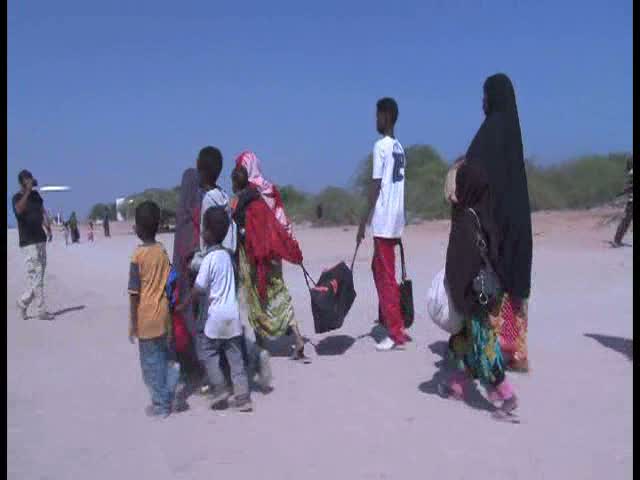Home > Where We Work > Africa > East and Horn of Africa > Djibouti
2015 UNHCR country operations profile - Djibouti
| Overview |
Working environment
-
Long considered an example of stability in a volatile region, Djibouti is now facing a precarious security situation. The country plays a significant role in international efforts to combat piracy in the region, and supports the restoration of peace in Somalia; however these efforts have led to threats of reprisal attacks.
-
The country has limited natural resources and is struggling to recover from the continuous drought of recent years. Djibouti has a high national unemployment rate, placing further economic pressure on the population. Work opportunities and prospects for refugees' local integration are scarce: this affects livelihood opportunities.
-
Djibouti continues to deal with a protracted refugee crisis, having hosted more than 23,000 mainly Somali refugees, in many cases for more than two decades, in the Ali Addeh and Holl Holl refugee camps.
-
Its geographic location, environmental conditions, and regional socio-economic and security situation mean Djibouti has increasingly become a transit country for mixed migratory movements to other countries such as Yemen, and beyond to the Gulf States and Europe.
-
In 2015, UNHCR will continue to count on the hospitality and support extended to refugees and asylum-seekers by the Djibouti Government, including the provision of land for the two refugee camps. The Office National d'Assistance aux Réfugiés et Sinistrés (ONARS) will manage water, food distribution and security.
People of concern
The main populations of concern to UNHCR in Djibouti in 2015 are estimated to be approximately 23,000 refugees and more than 5,000 asylum-seekers. While mainly Somalis, there are also Ethiopians and Eritreans who fled their homes as a result of persistent conflict and violence in their countries of origin, with women and children representing more than 70 per cent of the refugee population in the two refugee camps.
| UNHCR 2015 planning figures for Djibouti | |||||
|---|---|---|---|---|---|
| Type of population | Origin | January 2015 | December 2015 | ||
| Total in country | Of whom assisted by UNHCR |
Total in country | Of whom assisted by UNHCR |
||
| Total | 27,500 | 27,500 | 28,850 | 28,850 | |
| Refugees | Eritrea | 610 | 610 | 760 | 760 |
| Ethiopia | 480 | 480 | 600 | 600 | |
| Somalia | 21,580 | 21,580 | 22,080 | 22,080 | |
| Various | 10 | 10 | 10 | 10 | |
| Asylum-seekers | Eritrea | 780 | 780 | 840 | 840 |
| Ethiopia | 3,930 | 3,930 | 4,430 | 4,430 | |
| Somalia | 40 | 40 | 40 | 40 | |
| Various | 60 | 60 | 80 | 80 | |
| Response |
Needs and strategies
In 2015, UNHCR will protect and assist more than 28,000 people in Djibouti who are seeking asylum from insecurity and oppression in neighbouring countries. The Office will continue to research the most appropriate durable solutions for the population of concern in a protracted situation - developed in coordination with partners, the Government and the communities themselves - to address their needs.
Based on the results of physical verification and a household socio-economic assessment of refugees, which is planned for the end of 2014, UNHCR is likely to reorient its programme towards the search for durable solutions.
The Office and its main partners will place greater focus on self-reliance activities in Djibouti, while continuing to work on improving the operational context in the country. Building on work undertaken in 2014, activities in 2015 will focus on: health/nutrition, water, education and self-reliance/livelihood activities, sexual and gender-based violence (SGBV), and durable solutions. For people in a protracted situation, UNHCR will enhance access to self-reliance and livelihood activities to help reduce their dependency on assistance.
| Implementation |
Coordination
NHCR maintains close cooperation with the Government, other UN agencies and national and international NGOs, in order to protect and assist refugees in a joint and comprehensive manner.
The organization's main government counterpart and implementing partner will continue to be the Office National d'Assistance aux Réfugiés et Sinistrés (ONARS). The Ministry of Urbanism, Housing and Environment implements environmental and energy activities.
UNHCR will maintain partnerships with NGOs. WFP will continue supplying food rations to refugees in the camps. The Office will engage with UNICEF and other UN agencies, guided by the letter of understanding and plan of action on the coordination of critical activities in the sectors of child protection, health and nutrition, education, and water and sanitation in 2015.
UNHCR is fully engaged in the Humanitarian Country Team in Djibouti, where refugee programmes are discussed to ensure that refugees' needs are addressed comprehensively.
| 2015 UNHCR partners in Djibouti |
|---|
| Implementing partners |
| Government agencies: Ministry of the Interior (ONARS), Ministry of Urbanism, Housing and Environment |
| NGOs: Association pour la protection de l'enfance et pour l'épanouissement de la famille, Lutheran World Federation, Union nationale des femmes djiboutiennes |
| Others: FAO, IGAD, IOM, UNDP, UNFPA, UNICEF, WFP |
| Operational partners |
| NGOs: Caritas, Danish Refugee Council, Life in Abundance International, Norwegian Refugee Council |
| Financial information |
During the last four years, the financial requirements for UNHCR's operation in Djibouti have grown from USD 20.8 million in 2010, with the current 2014 budget standing at almost USD 27 million.
The 2015 financial requirements for Djibouti are set at USD 27.1 million and are fully allocated for the needs of refugees and asylum-seekers (mainly Ethiopians, Eritreans and Somalis). A funding shortfall would cause critical gaps in several areas including: primary health care and referral services; malnutrition and anaemia reduction programmes; and water supply in the refugee camps (less than 11 litres per person per day). Other needs include additional classrooms for refugee children and capacity-building activities for NGOs and government officials. Furthermore, UNHCR will not be able to undertake joint registration of refugees with the Government unless sufficient resources are available.
Source: UNHCR Global Appeal 2015 Update
UNHCR contact information
| The UNHCR Representation in Djibouti | |||||||||||||||
|---|---|---|---|---|---|---|---|---|---|---|---|---|---|---|---|
| Style of Address | The UNHCR Representative in Djibouti | ||||||||||||||
| Street Address | LOT No 24, Rue De L'Ígad, Quartier Heron, Djibouti, Djibouti | ||||||||||||||
| Mailing Address | B.P. 1885, Djibouti, Djibouti | ||||||||||||||
| Telephone | 253 21 35 16 77 | ||||||||||||||
| Facsimile | 253 21 35 86 23 | ||||||||||||||
| Website | http://www.unhcr.org | ||||||||||||||
| djbdj@unhcr.org | |||||||||||||||
| Time Zone | GMT + 3 | ||||||||||||||
| Working Hours |
|
||||||||||||||
| Public Holidays | 01 January 2015, jour de l'an 04 January 2015, fete mouloud 05 April 2015, paques 29 April 2015, fete du travail 17 May 2015, al isra al miraj 28 June 2015, fete de l'independence 19 July 2015, aid el fitr 24 September 2015, aid al adha 25 October 2015, nouvel an musulman 24 December 2015, noel |
||||||||||||||
| Comments | CALENDRIER DES JOURS FERIES - 2016 DIMANCHE 3 JANIVER 2016 - JOUR DE L'AN DIMANCHE 27 MARS 2016 - PAQUES DIMANCHE 1 MAI 2016 - FETE DU TRAVAIL MERCREDI 4 MAI 2016 - AL-ISRA AL MIRAJ LUNDI 27 JUIN 2016 - FETE DE L'INDEPENDANCE MERCREDI 6 JULLET 2016 - AID EL FITR* DIMANCHE 11 SEPTEMBRE 2016 - NOUVEL AN MUSULMAN* MARDI 13 DECEMBRE 2016 - FETE MOULOUD DIMANCHE 25 DECEMBRE 2016 - NOEL |
||||||||||||||



















